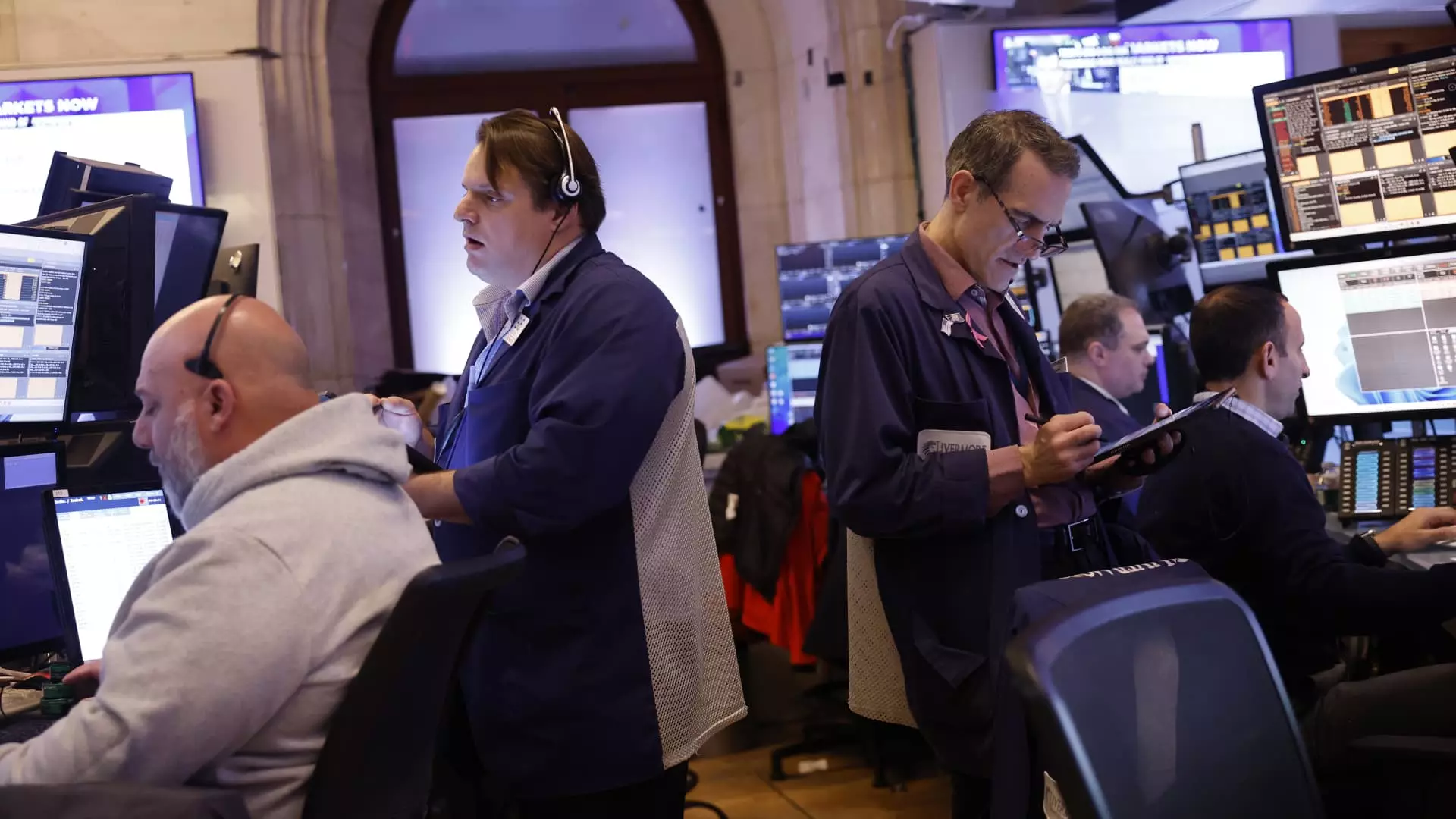In the aftermath of the recent U.S. presidential election, the stock market has experienced a notable surge, especially among large companies, as highlighted by data from S&P Global Market Intelligence. An analysis reveals a stark contrast between the performance of specific stocks and the broader S&P 500 index. While the S&P 500 saw a modest gain of about 2% between November 5 and November 20, the top performers spiked dramatically, with returns exceeding 18%, and some individual stocks witnessing breathtaking increases of over 35%. This raises critical questions for investors about the sustainability of these surges and the potential risks associated with chasing short-term gains.
The dramatic price increases can be attributed to various factors, primarily the anticipated policies and stances of the incoming Trump administration. Notable successes include companies like Axon Enterprise and Tesla, with their stocks rising significantly during this period. Axon, known for law enforcement technology, and Tesla, an electric vehicle pioneer, both benefited from a climate of optimism around deregulation and a favorable business environment. This phenomenon signals that while momentum can drive stock prices skyward, the permanence of such gains is questionable and warrants cautious scrutiny.
Jeremy Goldberg, a certified financial planner, warns investors against conflating short-term gains with reliable investment strategies. The allure of seemingly quick profits can lead to impulsive decisions devoid of thorough analysis. Investors must delve deeper into the underlying drivers of these price movements—understanding whether they are fundamentally sound or merely reactions to external headlines.
One sector particularly poised for growth in the wake of a new administration is energy. Analysts predict a less restrictive environment for oil and gas projects, reflecting Trump’s commitment to increasing fossil fuel production and rolling back previous climate regulations. This shift significantly impacted stocks in the sector, such as EQT Corporation, which saw a 24% increase during the specified period. The close ties between policy changes and stock performance in the energy sector illustrate how political climates can shape investor sentiment and corporate fortunes.
However, reliance on political momentum for stock performance is precarious. The energy sector, buoyed by anticipated favorable regulations, could evaporate if actual policy implementations deviate from market expectations. Investors must consider the longevity of this “Trump momentum” and question whether it is built on sustainable foundations or simply a fleeting reaction to electoral outcomes.
Another area where investors observed surges is the media and entertainment sector, driven by the potential for lax regulatory frameworks regarding mergers and acquisitions. Companies like Warner Bros. Discovery and The Walt Disney Company could significantly benefit from a more permissive approach to consolidation, stirring investor interest and boosting stock prices. This potential lays a foundation for broader shifts in the market landscape, where companies might expand their influence through mergers, creating a more competitive environment.
Yet, stakeholders must remember that the promise of mergers is inherently subject to change. Regulatory environments fluctuate, making it essential for investors to remain vigilant and discerning. The joy of a temporary surge should not eclipse the need for a long-term vision, considering how consolidation might impact the viability of individual companies in this dynamic environment.
The excitement around artificial intelligence (AI) has also played a pivotal role in stock performance post-election. Companies like Palantir Technologies and Vistra Corp. have reported strong earnings driven by increasing demand for AI solutions and energy to power evolving technologies. Their respective stock performances highlight a critical intersection of technology and investment strategy, where innovation fuels optimism and market reactions.
However, as AI continues to transform industries, stakeholders must assess whether these gains are sustainable. Shifts in technological adoption or disruptions could render current investments unstable. Responsible investing entails balancing innovation with thorough research, ensuring that enthusiasm does not lead to shortsighted decisions.
Elon Musk’s influence on Tesla is notable, particularly in the context of the recent election. Musk’s close ties to Trump could be seen as a digital boost, often termed the “Elon Musk premium,” which drove the stock price significantly higher following the election. Nonetheless, this raises an important question: are such surges built to last? With the risk of policy reversals or changes in consumer sentiment towards electric vehicles, investors must consider the broader implications of their reliance on individual personalities in the market.
While the post-election stock market surge illustrates the power of momentum and the impact of political climates on investor sentiment, it simultaneously highlights the need for a critical approach to investment strategies. The excitement surrounding certain industries and companies should be weighed against potential risks and the sustainability of gains. As always, prudent investing involves careful analysis, a solid understanding of market dynamics, and a long-term perspective to navigate the ever-evolving landscape.

